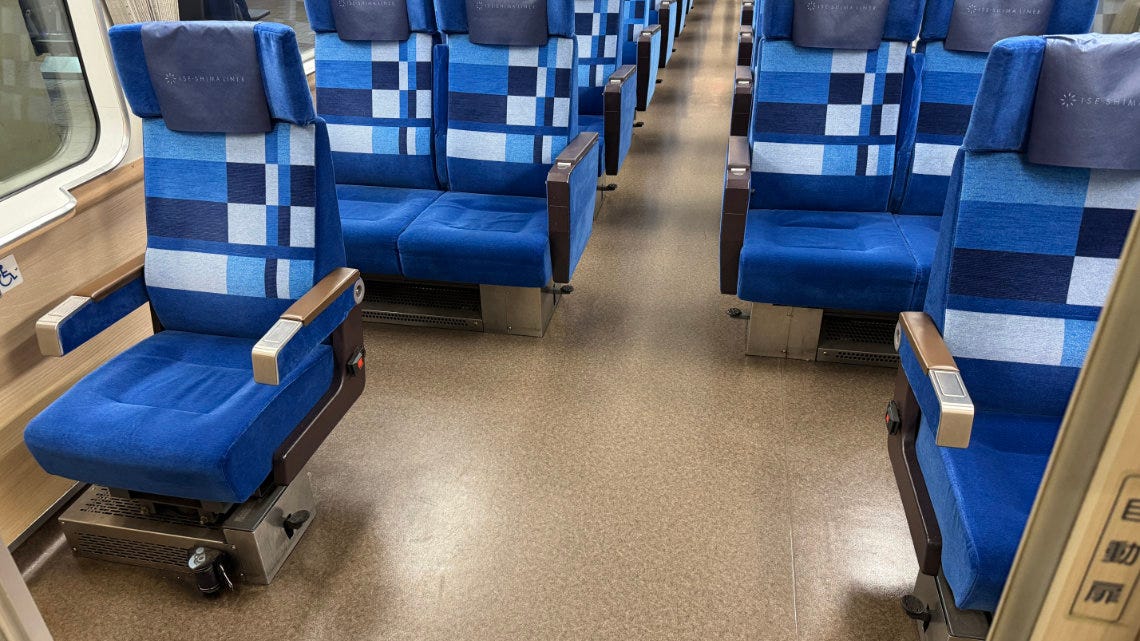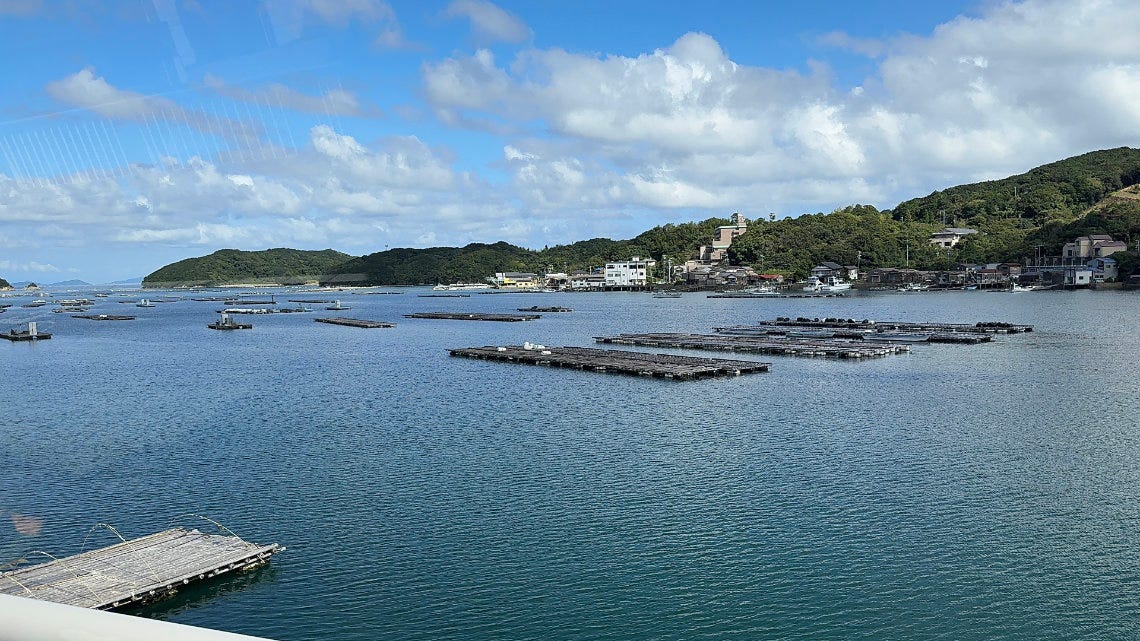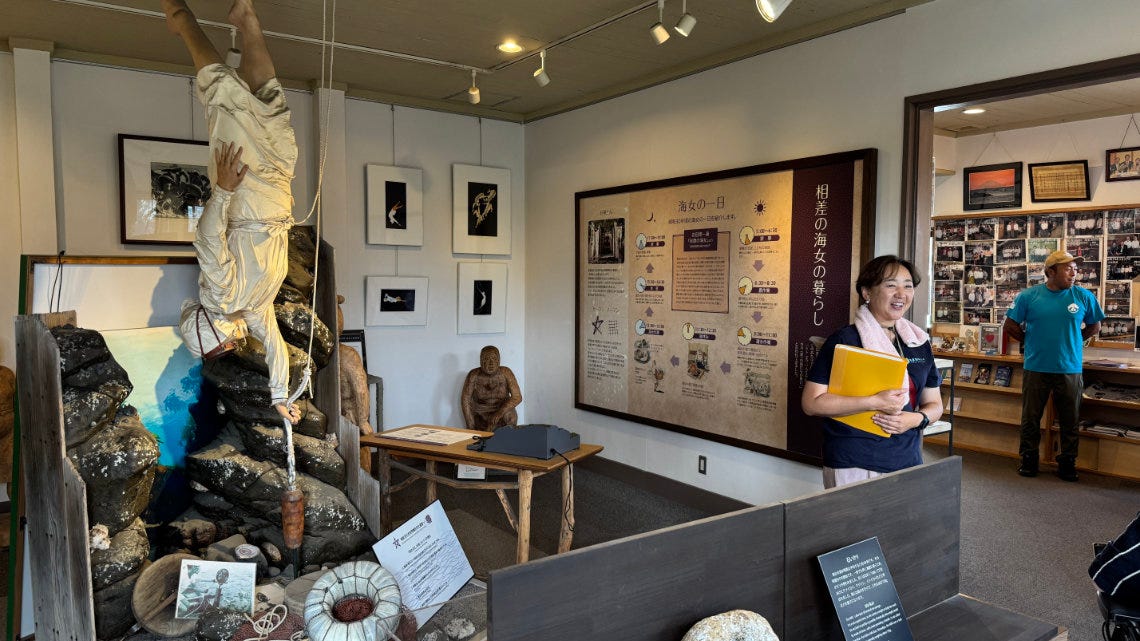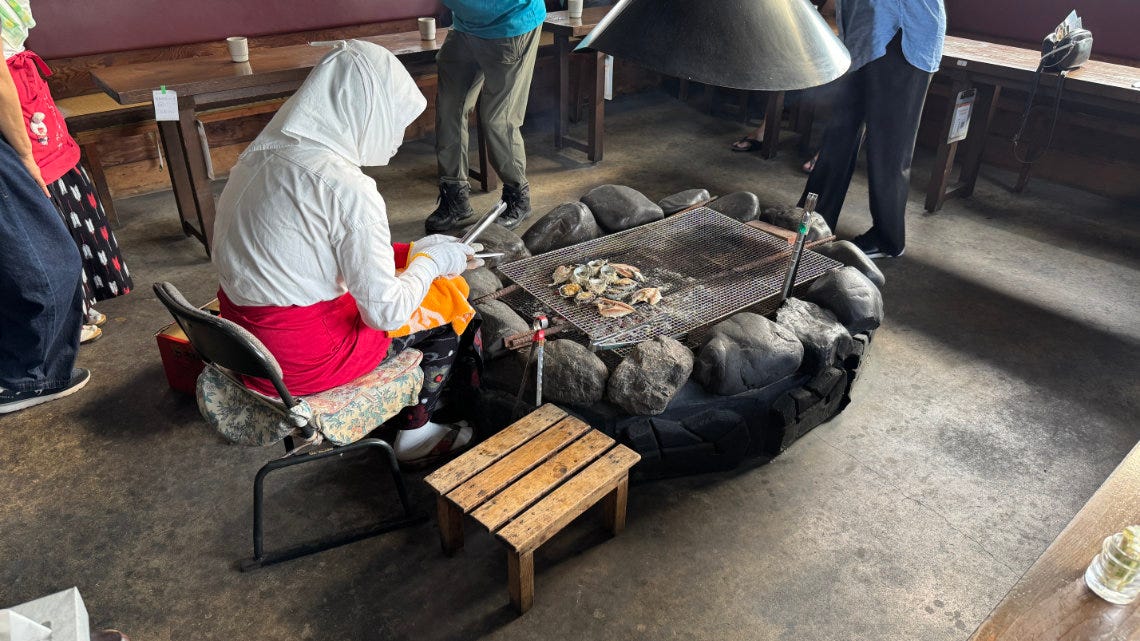Ise-Shima: An Accessible Journey Through Japan’s Coastal Heritage
Nestled along the rugged coastline of Mie Prefecture, the Ise-Shima region is where Japan’s natural beauty, timeless traditions, and rich cultural heritage come together. Famous for its coastal landscapes, pearl cultivation, and the legendary Ama women divers, the area offers a rare glimpse into both Japan’s living culture and its connection to nature. Yet beyond the history and craftsmanship, Ise-Shima is also a place of adventure – a national park of islands, inlets, and calm blue waters waiting to be explored.
I was invited to explore the region on a three-day trip organized by the Ise-Shima National Park Eco-Tourism Promotion Council and the Ise-Shima Barrierfree Tour Center to experience firsthand what makes this area so special.
Day 1 – History and Heritage by the Sea
I set out for the first day of my trip to Ise-Shima in the morning, leaving Tokyo at around 9am and heading towards Nagoya. From Nagoya there are several train options operated by Kintetsu Railways leading down to the Ise-Shima area from Nagoya. As the trip from Nagoya to Ise-Shima is a bit over an hour on the express trains, I recommend booking a seat in advance which you can do online. I appreciated that when booking the accessible seat there was a confirmation box asking users to acknowledge that they knew they were buying a seat reservation for the accessible seat and that it should be used by those who truly need it – a good compromise of the convenience of buying online, but ensuring the accessible seats were reserved for those who need it. Note that not every express train has an accessible seat, so pay attention when making your plans. The trains with accessible seating have an accessible toilet as well.
Once we arrived around 2:00pm, we were greeted by members of Kaito Yumin Club and the Ise-Shima Barrierfree Tour Center who had prepared a wheelchair accessible van. As we traveled to our first destination, I was taken aback by the beautiful coastline of the Ise-Shima region – far different than Tokyo.
Our first stop was the Osatsu Ama Culture Museum which helped us learn the basics about the famous Ama women divers with a 2000 year history and were known to dive for seafood and were honored with the task of retrieving abalone for shrines and imperial emperors. The tradition is still alive but climate change is impacting their livelihood. The museum is small but has some great exhibits and an accessible toilet (mens’ side).
From there we walked to the nearby Shinmei Shrine, known as Ishigami-san, a Shinto shrine revered by ama divers and widely believed to grant “one wish of a woman.” Despite being a small shrine, it has gained some popularity and has used proceeds from offerings to make the shrine accessible with ramps and an accessible toilet.
We got back in the car and set off to meet some Ama divers – and enjoy a traditional “ama snack”. These “Ama Huts” are set up to help share the heritage, but also support the divers as climate change has been decreasing their catch and livelihood. There are several Ama huts you can visit but the one we visited really stood out for inclusion. Not only did it have a flat entrance to get in, they also invested in a lift-equipped shuttle bus, accessible bathroom, and prayer rooms for Muslim visitors.
The “snack” of dried fish, abalone, and turban shell was grilled on an a charcol fire and seasoned lightly with a bit of soy sauce. One of the Ama was a bit concerned the table was a bit too low for me and quickly went off to find a new one for me. She was 94 years old and had been diving until she was 80! She now works with other retired Ama divers sharing about the history of Ama divers and their daily lives, making the history come to life and the time together even more special. At they end, they performed a dance and encouraged everyone to join in.
We headed off to our hotel to rest up for the next day. The hotel, Miyako Resort Okushima, had a spacious accessible twin room with an amazing view of the islands.
Day 2 – From Flavor to Adventure
(Subscribers receive the full post directly — it will be published later on Accessible Japan for general readers.)












